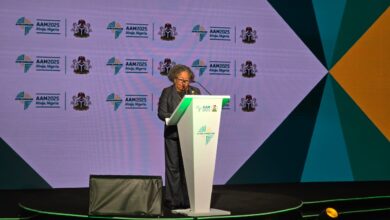|
|
|
|
The Minister for Foreign Affairs of Japan and the Ministers responsible for Foreign Affairs of the Member States of the Caribbean Community (CARICOM) and other Heads of Delegations, hereinafter referred to as the “Foreign Ministers”, meeting in Tokyo on 2 September 2010, confirmed the steady development of Japan-CARICOM relations based on “A New Framework for Japan-CARICOM Cooperation for the Twenty-first Century” adopted in 2000. In this light, the Foreign Ministers discussed ways to further deepen cooperative relations under the new international circumstances, and prepared the document “Partnership for Peace, Development and Prosperity between Japan and the Member States of the Caribbean Community (CARICOM)”, which gives a further direction to future Japan-CARICOM relations.
1. Overcoming Vulnerability and Promoting Human Security Taking into account the fact that CARICOM Member States are confronted with various challenges arising from their vulnerability in the face of economic globalization and the growing influence of global warming, the Foreign Ministers recognized the importance of cooperation with an emphasis on the following areas from the perspective of human security, in order to support the efforts of CARICOM Member States to promote sustainable development. 1-1 Disaster Risk Reduction Frequent hurricanes afflict CARICOM Member States, resulting in severe damage to their basic livelihood and infrastructure. Hurricanes represent one of the major factors contributing to the vulnerability of these States. Moreover, the devastating earthquake that occurred in Haiti in January this year took a heavy toll on human lives and left tremendous damage, with serious consequences for infrastructure throughout the most populous areas of the Country and threatening Haitian livelihood. Based on the commonly held view that disaster risk reduction is crucially important for the stabilization of national livelihood and sustainable development, and, considering the fact that Japan has abundant knowledge and experience in this field, the Foreign Ministers affirmed their intention to promote cooperation in this area. 1-2 Education and Capacity Development The Foreign Ministers reiterated their support for cooperation in the field of education for the attainment of the education-related Millennium Development Goals (MDGs) by the 2015 timeline. While economic liberalization as a key component of globalization is stimulating economic growth and providing various opportunities, the process has exposed the widening income gaps both within and among countries, and has led to social destabilization. Recognizing that the social stability of CARICOM Member States is indispensable to their sustainable development, the Foreign Ministers affirmed their intention to cooperate in capacity-building for vulnerable sectors, including youth, women and children, for the enhancement of basic education, with the aim of arresting poverty. 1-3 Health and Medical Care Widening income gaps and increases in the poor population have impeded the delivery of medical and health care services and the public’s access to primary health care. The Foreign Ministers, therefore, affirmed their will to cooperate for the improvement of access to primary health care service, and for the enhancement of capacity for prevention, health education and treatment of infectious diseases in CARICOM Member States. In this regard, the Foreign Ministers reaffirmed the importance of their continued cooperation in respect of combating HIV/AIDS, which is a major challenge for the CARICOM. The Foreign Ministers also called for the widest support of the United Nations High Level Meeting on Non-Communicable Diseases which will be held in 2011. 2. Integration into the Global Economy Taking into account the importance for each CARICOM Member State, particularly after the global economic crisis, to develop key industries, expand trade and investment and utilize effectively information and communications technology (ICT) in order to ensure the sustainable development and the integration into the global economy of the CARICOM economies, the Foreign Ministers affirmed the necessity to promote exchange between Japan and CARICOM Member States including the private sector and to strengthen cooperation, particularly in the following areas. 2-1 Improvement of Key Industries (Tourism, Fisheries and Agriculture) Recognizing that tourism is the principal industry of CARICOM Member States, the Foreign Ministers affirmed their willingness to promote exchange between the countries, including in the private sector, to ensure the continuous development of tourism. The CARICOM expressed appreciation for Japan’s cooperation to strengthen their fisheries industry. The Foreign Ministers confirmed that they would maintain close cooperation in the area of sustainable development, conservation and management of the region’s fisheries and marine resources to ensure that they make contribution to economic and social development. They also emphasized the need to better understand the impacts of climate change on the fisheries and marine ecosystem, and implement adaptation and mitigation measures to protect food security and the livelihoods of coastal communities of CARICOM Member States. Recognizing the importance of improving agricultural production with the aim of increasing the ratio of food self-sufficiency in CARICOM Member States, the Foreign Ministers affirmed their intention to maintain cooperation in the agricultural sector. 2-2 Promoting Trade and Investment (Promotion of Local Industry) Recognizing that the promotion of local industry contributes to the diversification of the industrial structure, promotion of regional development and alleviation of income gaps, the Foreign Ministers confirmed that they would continue to cooperate in vocational training and other human resource development programs in such areas as marketing, development of manufacturing skills, standards and quality control and entrepreneurship. They noted that the “One Village One Product Movement” could provide a useful demonstration of the opportunities and initiatives that could be explored in the CARICOM. 2-3 Promoting the Utilization of Information and Communications Technology (ICT) In light of the importance of information and communications technology (ICT) for the development of the CARICOM economies, the Foreign Ministers affirmed their intention to cooperate for effective literacy in, access to and utilization of information and communications technology (ICT) in CARICOM Member States. To this end, the goal of universal access to broadband connectivity was emphasized. 3 Environment and Climate Change Recognizing that environmental challenges must be tackled urgently with collaboration at all levels, the Foreign Ministers affirmed their intention to cooperate in particular on the following areas. 3-1 Climate Change The Foreign Ministers reaffirmed that CARICOM Member States are particularly vulnerable to the adverse effects of climate change and that they required support from their development partners to address the challenges posed by climate change and its adverse impacts. They underlined the necessity of concluding the ongoing negotiations under the United Nations Framework Convention on Climate Change (UNFCCC), and called upon all states to engage constructively in the negotiations, based on the work undertaken by COP 15. In this context, the Foreign Ministers confirmed their intention to work towards an agreed outcome at COP 16 scheduled for Cancún, Mexico, in November-December 2010 in order to adopt a new, ambitious and comprehensive legal document to establish a fair and effective international framework to address climate change. Recognizing the necessity to take immediate measures against the serious threats caused by climate change which confront CARICOM Member States, the Foreign Ministers affirmed that Japan will enhance its cooperation to CARICOM Member States in their efforts to implement adaptation and mitigation measures promptly and effectively, and in this regard recognized the need of CARICOM Member States to access fast start financing. 3-2 Conservation of Biological Diversity The Foreign Ministers also underlined the importance of conservation of biological diversity, the sustainable use of its components and the fair and equitable sharing of the benefits arising out of the utilization of genetic resources in CARICOM Member States, as they are endowed with abundant flora and fauna, and affirmed their commitment to cooperate for the 10th Conference of the Parties to the Convention on Biological Diversity to be held in Aichi-Nagoya in 2010. 3-3 Renewable Energy and Energy-Saving Technology To tackle the climate change challenges and to ensure the sustainable development, the Foreign Ministers affirmed their intention to cooperate in the introduction of renewable energy and energy-saving technology aimed at reducing the burden on the environment. 3-4 Realization of a Recycling-Based Society Recognizing that it is crucial to realize a recycling-based society that keeps harmony between the use of natural resources as well as economic activities and natural cycle, the Foreign Ministers affirmed their will to cooperate in promoting reduce, reuse and recycle (3R) in the area of waste management. Further, recognizing the importance of ensuring clean water for human health, as well as for economic activities and the conservation of ecosystem, the Foreign Ministers affirmed their intention to cooperate in improving access to safe drinking water and addressing water pollution. 4 Assistance for the Reconstruction of Haiti The Foreign Ministers expressed their solidarity with Haiti, which suffered a catastrophic earthquake on 12 January 2010, and noted with appreciation the contribution which both Japan and CARICOM Member States had made to the emergency relief effort in Haiti, their continued support to satisfy emergency needs and their commitment to the medium- and long-term reconstruction of Haiti in accordance with the priorities set by the Government and people of Haiti. The CARICOM applauded the response by Japan to this catastrophe, which included its participation in the United Nations peacekeeping operation to support the immediate recovery, reconstruction and stability efforts. The Foreign Ministers also affirmed their will to ensure maximum cooperation of Japan and CARICOM Member States to assist in the reconstruction of Haiti. The Representative of Haiti appreciated the assistance and assured that Haiti will make best effort in the reconstruction. 5 Cooperation in International Fora Renewing their recognition of the importance of promoting mutual understanding and strengthening cooperation in international fora between Japan and CARICOM Member States, the Foreign Ministers discussed current international issues of common concern. 5-1 Nuclear Disarmament, Non-Proliferation and Peaceful Uses of Nuclear Energy Welcoming the successful outcomes of the Treaty on the Non-Proliferation of Nuclear Weapons (NPT) Review Conference held on 3-28 May 2010, the Foreign Ministers reaffirmed their commitment and support to implement the Action Plan adopted at the Conference with a view to achieving a world without nuclear weapons, making a further progress in nuclear disarmament, nuclear non-proliferation and peaceful uses of nuclear energy. 5-2 Reform of the UN Security Council The Foreign Ministers reaffirmed their strong belief in multilateralism with the United Nations at its center. The Foreign Ministers emphasized the need for a comprehensive reform of the United Nations to make it more effective, accountable, efficient and transparent, and shared the intention to co-ordinate the efforts of their delegations in New York in this matter. In this context, the Foreign Ministers gave particular attention to the need for an early realization of the reform of the United Nations Security Council through expansion in both permanent and non-permanent categories of membership. 5-3 North Korean Issues The Foreign Ministers confirmed that they shared concern regarding North Korea’s development of nuclear and ballistic missile programs. CARICOM Member States acknowledged Japan’s concern regarding human rights and humanitarian issues including the abduction. The Foreign Ministers reaffirmed the importance of the full implementation of the September 2005 Joint Statement as well as the importance of the steady implementation of the relevant United Nations Security Council resolutions by all United Nations member states. 6 Dialogue and Exchange between Japan and the CARICOM With the aim of promoting dialogue and exchange between Japan and the CARICOM and further consolidating the mutual relationship, the Foreign Ministers affirmed the importance of holding ministerial-level meetings, continuing periodic Japan-CARICOM consultations and maintaining the smooth exchange of information through the CARICOM Secretariat. The Foreign Ministers also reaffirmed the importance of promoting communication through wide-ranging exchange between its people including the private sector, civil society and youth, and enhancing mutual understanding through cultural exchange activities. CARICOM Member States expressed their gratitude for the assistance given to date by Japan through the Japan-CARICOM Friendship and Cooperation Fund, and affirmed their intention to continue cooperating to promote further effective assistance through the Fund. Tokyo |
Press ReleasesStatements and Declarations





